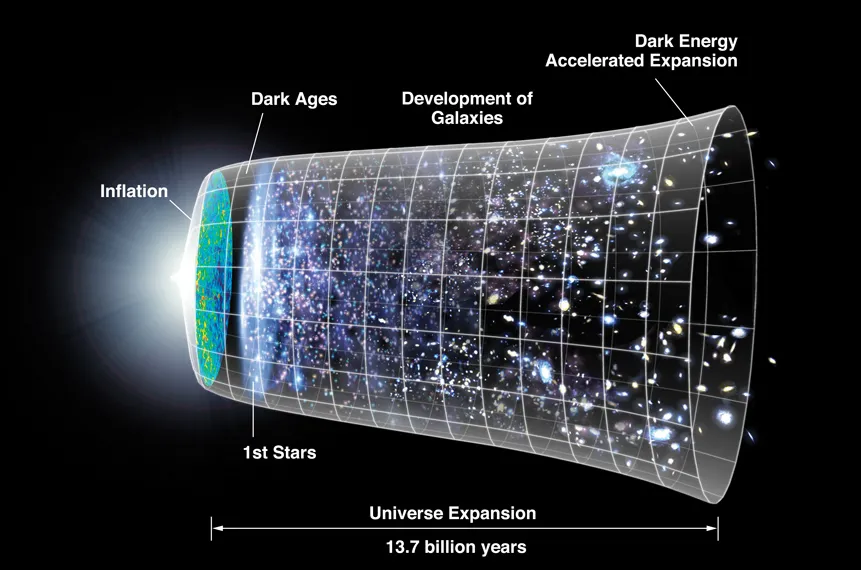The research field of cosmology aims to explain the composition and evolution of the Universe and to connect the observations to an underlying physical model. Our lab is particularly interested in exploring the nature of dark energy and dark matter, the growth of our Universe's largest structures, the laws of gravity across large distances, and the concept of inflation in the very early Universe.
To make progress on these questions we use a combination of analytical methods, numerical simulations, statistical data analysis, and machine learning to place tight constraints on the cosmological parameters that underpin our current best understanding of the Universe.

We are involved in a variety of ground and space-based surveys such as the Dark Energy Survey (DES), the Dark Energy Spectroscopic Instrument (DESI), Rubin Observatory’s Legacy Survey of Space and Time (LSST), the James Webb Space Telescope, the SPHEREx explorer mission, the Nancy Grace Roman Space Telescope, and the CMB-S4 experiment.
The deluge of data from these missions and experiments over the next decade requires next generation computational and statistical methods to extract the cosmological information. It is one of our main areas of expertise to develop new methods and analysis concepts to optimally utilize these datasets, in particular, when combining different observables from different datasets in the cosmological inference process.
